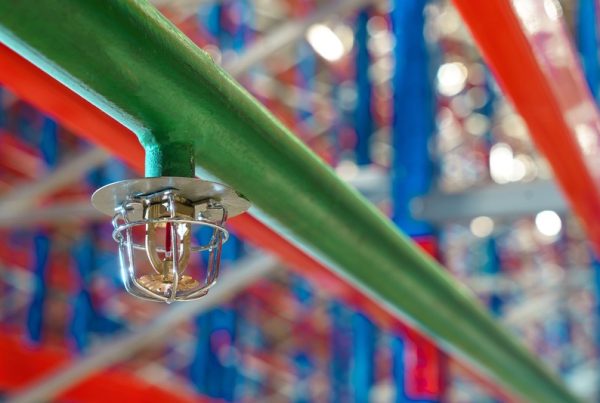In the last few years, global business has seen a dramatic transformation. This is primarily due to the rapid advances in technology, and the increasing prevalence of internet in virtually every aspect of business. These advancements are not without challenges. Cyber-attacks are one of the biggest challenges that modern businesses have to face. Commercial insurance is crucial in ensuring that businesses are protected from cyber-attacks. This article explores the evolving relationship between commercial insurance and cybersecurity, and highlights the seismic shifts as well as the new breeds of insurance products that aim to protect businesses in the digital age.
Section 1. The rising tide of cyber-attacks
Cyber-attacks are becoming more common as the digital footprint of companies grows. Cyber-attacks have increased dramatically over the past decade, as hackers continue to refine their methods and exploit new vulnerabilities. The complexity and variety of cyber-threats are constantly evolving. From ransomware that holds data hostage, to sophisticated phishing scams that trick employees into divulging sensitive information. Reports indicate that the financial impact of cyber-attacks has skyrocketed. They not only affect the bottom line, but also damage the reputation of the company.
The COVID-19 pandemic accelerated the shift to remote work, increasing the attack surface of cybercriminals. The task is now Herculean for businesses, as they must protect not only the central operations of the company but also all the endpoints that employees access from different locations. Commercial insurance is a key player in mitigating financial risks associated with cyber attacks.
Section 2 – The Transformation of Commercial Insurance
As a response to the growing threat, the commercial insurance industry has experienced a paradigm change, reevaluating risk assessment and introducing specific products designed to counteract financial consequences of cyber threats. Insurance companies are working closely with cybersecurity specialists to create products that provide comprehensive protection from a wide range of cyber threats. This symbiotic partnership has led to the development of insurance policies based on a thorough understanding of cyber risks. Businesses can now benefit from a financial cushion as well as expert guidance in order to navigate the treacherous waters that exist within the digital world.
Insurance companies also use cutting-edge technology, such as big data analytics and artificial intelligence, to improve their ability to assess risk. These technologies enable businesses to monitor cyber threats in real-time, providing them with timely alerts that allow them to take preventative action. This integration marks a major departure from the traditional insurance practices and signals a new age of proactive, data-driven risk management.
Section 3: New Frontiers in Cybersecurity Insurance
A new generation of cyber insurance products have emerged as the industry continues its innovation. They offer businesses a strong line of defense against threats. These products include a variety of features including coverage for data breaches, business interruption losses and reputational damage. These policies are multi-faceted and protect businesses against the various implications of cyber attacks.
Cyber risk assessment services are now available as an optional component in insurance policies. This is a notable development. Insurance providers offer businesses resources and tools to assess their cybersecurity posture, identify vulnerabilities and implement preventive actions. This holistic approach is more than just financial compensation. It fosters a culture of cybersecurity preparedness and awareness within the organization.
The flexibility of these products also allows for customisation based on specific business needs and risks. Commercial insurance can offer customized solutions to meet the needs of any business entity, whether it is a small company with limited online presence or an international corporation with complex digital operations.
Section 4. Case Studies: Lessons from the Field
Let’s look at some real-life examples where commercial insurance has proven to be a boon for businesses in the face cyber adversity.
Case study 1 A medium-sized retailer fell victim to a ransomware assault, and the perpetrators demanded a large sum of money for the release critical data. The company was able to respond quickly to the ransomware attack by engaging cybersecurity experts who neutralized the threat. They were able to restore operations without having to pay the attackers’ demands.
Case study 2 A financial services company experienced a breach of data, which resulted in the leakage sensitive customer information. Cyber insurance covered costs incurred by the firm in response to the data breach, such as customer notification and public relations efforts aimed at minimizing reputational damage. It also covered legal fees from possible lawsuits.
These case studies highlight the many benefits of having an effective cyber insurance policy. It provides businesses with the financial support and operational support they need to survive the cyber storm.
Section 5. Looking Ahead: The Future of Commercial Insurance at the Digital Age
As we move further into the digital era, the relationship between commercial insurance and cybersecurity is set to grow. In the future, we can expect to see more sophisticated insurance policies that are based on a thorough understanding of cyber risks.
The insurance industry is also expected to play an important role in creating a culture of cybersecurity preparedness and awareness within the business community. Insurance providers can help businesses by educating them and collaborating with cybersecurity experts.
In the future, it is expected that technology will be more deeply integrated into commercial insurance practices, with artificial intelligence (AI) and data analytics being a key component in improving risk assessment and policy customisation. Collaboration and innovation will be key to the journey ahead as the commercial insurance industry rises up to the challenge of protecting businesses in a digitalized world.
Conclusion
The surge in cyber attacks in recent years has highlighted the importance of commercial insurance to protect businesses from the financial and operation repercussions that cyber threats can have. In response to this challenge, the industry has introduced a new generation of insurance products which offer comprehensive coverage against a variety of cyber risks.
The partnership between commercial insurance and cybersecurity is now more important than ever as businesses expand their digital operations. Commercial insurance is poised to provide businesses with support in navigating a complex and evolving cyber threat landscape through innovation and collaboration. Commercial insurance is a reliable ally for businesses to operate with confidence in the digital world.
Commercial insurance is a strong bulwark for the business community by embracing the paradigm change brought about by cybercrime. This ensures that progress will not be slowed down by cybercriminals. Commercial insurance’s role in creating a prosperous and secure digital economy is not to be underestimated. It marks a new chapter for business protection and resilience.












